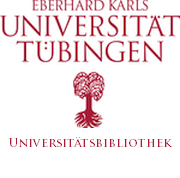Ausgrenzung und Leitkultur - Zur integrativen Funktion von »Parallelgesellschaften«
DOI:
https://doi.org/10.18156/eug-1-2007-art-5Abstract
Die ethnische Segregation von Migranten in »Parallelgesellschaften« wird häufig als Desintegration kritisiert. Aus sozialethischer Perspektive ist die kulturelle Differenz legitim, sofern die freiheitlich-demokratische Grundordnung anerkannt wird. Problematisch ist jedoch die Lebenslage von sozial benachteiligten Migranten, die ihnen ein Leben außerhalb von ethnischen Kolonien erschwert. Ethnische Kolonien können die soziale, wirtschaftliche und politische Integration von Migranten sowohl hemmen als auch fördern. Um ihr Integrationspotenzial auszuschöpfen, sind ein offenes gesellschaftliches Klima, das Engagement gut situierter Migranten und weiteres nötig. Statt die ethnische Segregation zu dramatisieren, sollte die deutsche Politik die Bildung geeigneter Migrantenselbstorganisationen anregen und fördern.The ethnical segregation of migrants in «ethnic communities» is frequently criticised as social disintegration. From a point of view rooted in catholic social teaching this cultural difference may be legitimate, as long as the liberal-democratic order is being recognised. However, the living conditions of socially disadvantaged migrants are problematic and make a life outside ethnic communities difficult. Ethnic communities are able to do both, either inhibit or promote the social, economic and political integration of migrants. In order to fully draw from their potential of integration in an open social environment, the commitment of well-to-do migrants and other conditions need to be fulfilled. Instead of dramatising ethnical segregation, German politics should stimulate and promote the formation of qualified self-organisations of migrants.






